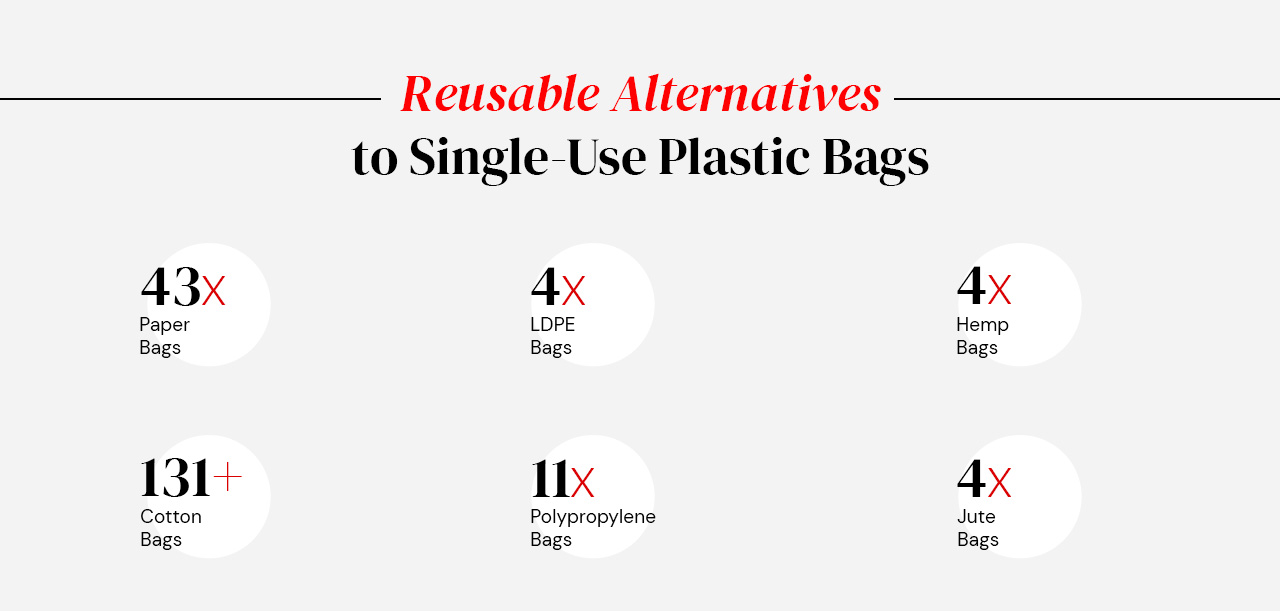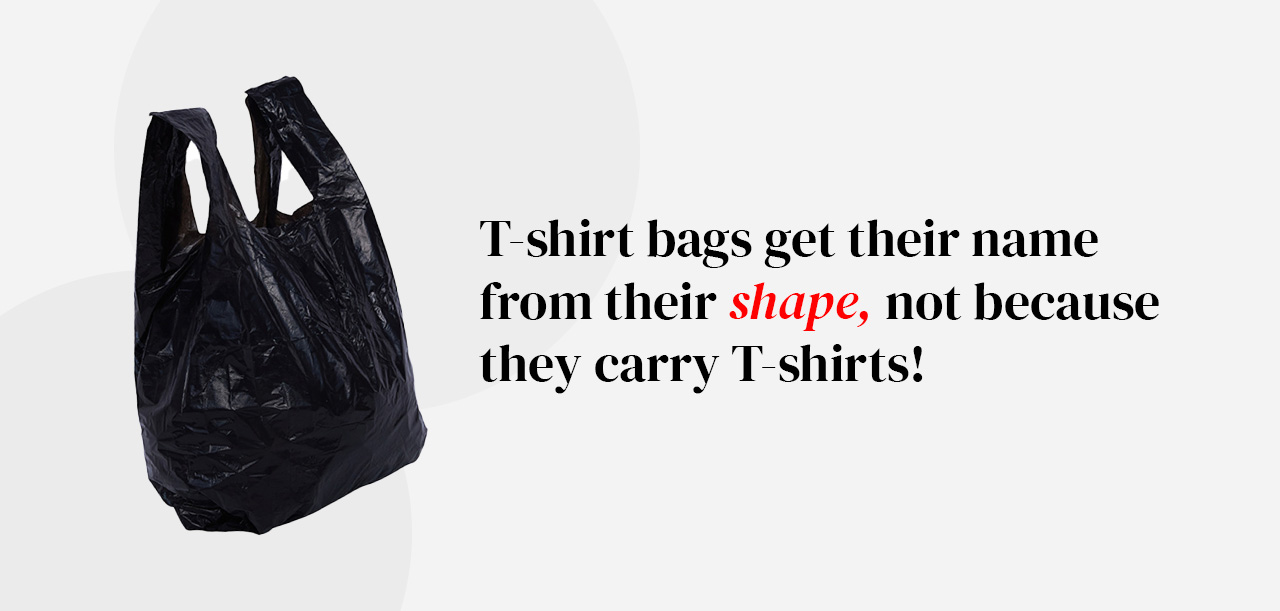The retail industry is undergoing a seismic shift towards sustainability. Consumers increasingly demand eco-friendly products and packaging, and businesses that fail to adapt risk losing customers. A recent Nielsen study found that 81% of global consumers believe companies should help improve the environment.
So, what’s the first step we can take towards sustainability? Ditching single-use plastic.
The Environmental Impact of Plastic Bags
Plastic bags reigned supreme for decades, but their detrimental environmental effects have pushed businesses and consumers alike to seek alternatives. Single-use plastic bags contribute to pollution, wildlife harm, and climate change. A staggering statistic from theEnvironmental Protection Agency (EPA) states that in the US alone, we use over 100 billion plastic shopping bags annually. Many end up in landfills, taking hundreds of years to decompose, or worse, polluting our oceans and harming wildlife.
T-Shirt Bags: A Sustainable Solution
T-shirt bags offer a significantly lower environmental footprint than plastic bags. Made from recycled materials or natural fibers, they are biodegradable and compostable.
Additionally, the reusability of T-shirt bags dramatically reduces the demand for single-use plastic bags. A study by theNational Resources Defense Council (NRDC) found that a reusable bag needs to be used just four times to have a lower environmental impact than a single-use plastic bag.

Infographic Content:
Reusable Alternatives to Single-Use Plastic Bags
And the number of times you need to use them so they have a lower environmental impact than a single-use plastic bag
- 43x Paper Bags
- 4x LDPE Bags
- 4x Hemp Bags
- 131+ Cotton Bags
- 11x Polypropylene Bags
- 4x Jute Bags
But let’s first understand what T-shirt bags really are and how they originated.
Understanding T-Shirt Bags

Infographic Content:
Fun Fact: T-shirt bags get their name from their shape, not because they carry T-shirts!
T-shirt bags get their name from their shape – a flat, rectangular bag with handles resembling a folded T-shirt or a sleeveless, scoop-neck shirt. Unlike their plastic counterparts, T-shirt bags are usually made from non-woven fabrics likeHDPE (High-Density Polyethylene). Think of them as a fabric-like material created by bonding fibers – often recycled materials like plastic bottles or natural fibers like cotton. This unique construction makes them surprisingly strong, reusable, and, yes, eco-friendly.
The Origin Story: How the T-Shirt Bag Came to Be
The humble T-shirt bag traces its roots back to the 1960s, thanks to the innovative minds at the Swedish companyCelloplast. They were the first to conceive the idea of a sealed bottom bag with handles resembling a sleeveless T-shirt. This design not only offered a unique look but also improved functionality compared to traditional flat plastic bags.
While the initial concept was plastic-based, the evolution towards sustainable materials is a testament to the industry’s response to growing environmental concerns. Today, T-shirt bags are synonymous with sustainability and offer a compelling alternative to their plastic predecessors.
Added Advantages: Cost-Effective and Brand-Boosting
While the initial cost of T-shirt bags might be slightly higher than plastic, the long-term benefits are undeniable. Their durability and reusability translate to cost savings for businesses and consumers alike. Customers are less likely to require new bags frequently, reducing the overall expenditure on packaging.
Moreover, T-shirt bags offer a prime branding opportunity. Customized with your company logo, website, or catchy slogan, they become walking advertisements, increasing brand visibility and customer loyalty. A study by thePromotional Products Association International (PPAI) found that 83% of consumers have a more favorable impression of a brand after receiving a promotional product, such as a reusable bag.
Implementing T-Shirt Bags in Your Business
Transitioning to T-shirt bags requires careful planning and execution. Here are some tips from SCI for a successful implementation:
- Communicate with customers: Inform customers about the switch and the environmental benefits of T-shirt bags.
- Offer incentives: Provide discounts or rewards for bringing reusable bags to encourage adoption.
- Invest in high-quality bags: Durable bags will last longer and create a positive customer experience.
- Consider a phased approach: Gradually introduce T-shirt bags to minimize disruption.
- Monitor customer feedback: Gather feedback to make necessary adjustments.
Choosing the Right T-Shirt Bag
T-shirt bags come in various materials, sizes, and styles to suit different needs. The most common materials are non-woven polypropylene and HDPE, which are known for their durability and affordability. However, other options include cotton, jute, and laminated non-woven fabrics, each with its own set of benefits.
When selecting T-shirt bags, consider factors such as:
- Material: Choose a material that aligns with your brand’s sustainability goals and the bag’s intended use.
- Size: Select the appropriate size to accommodate your products and customer needs.
- Handles: Flat handles are the most common, but die-cut or reinforced handles offer additional strength.
- Customization: Explore branding options to enhance your brand visibility.
Concluding Thoughts
The shift towards sustainable packaging is gaining momentum, and T-shirt bags are at the forefront of this movement. As consumer awareness of environmental issues grows, businesses that embrace eco-friendly practices will thrive. T-shirt bags represent a step in the right direction, offering a practical and environmentally friendly solution to the challenges posed by single-use plastic bags. By choosing T-shirt bags, businesses can not only reduce their environmental impact but also enhance their brand reputation and customer loyalty.
Ready to get started? Explore SCI’s HDPE T-shirt bags.

